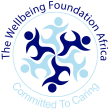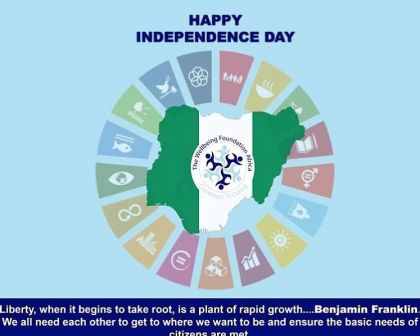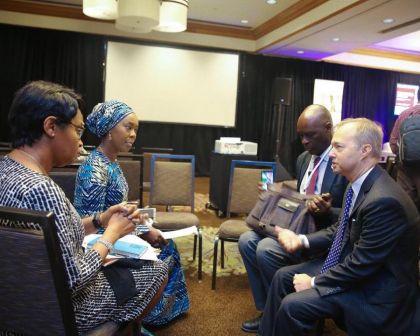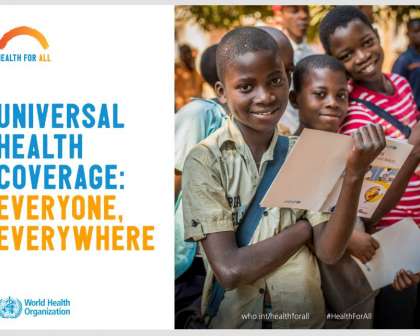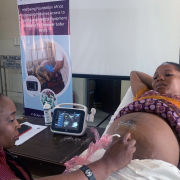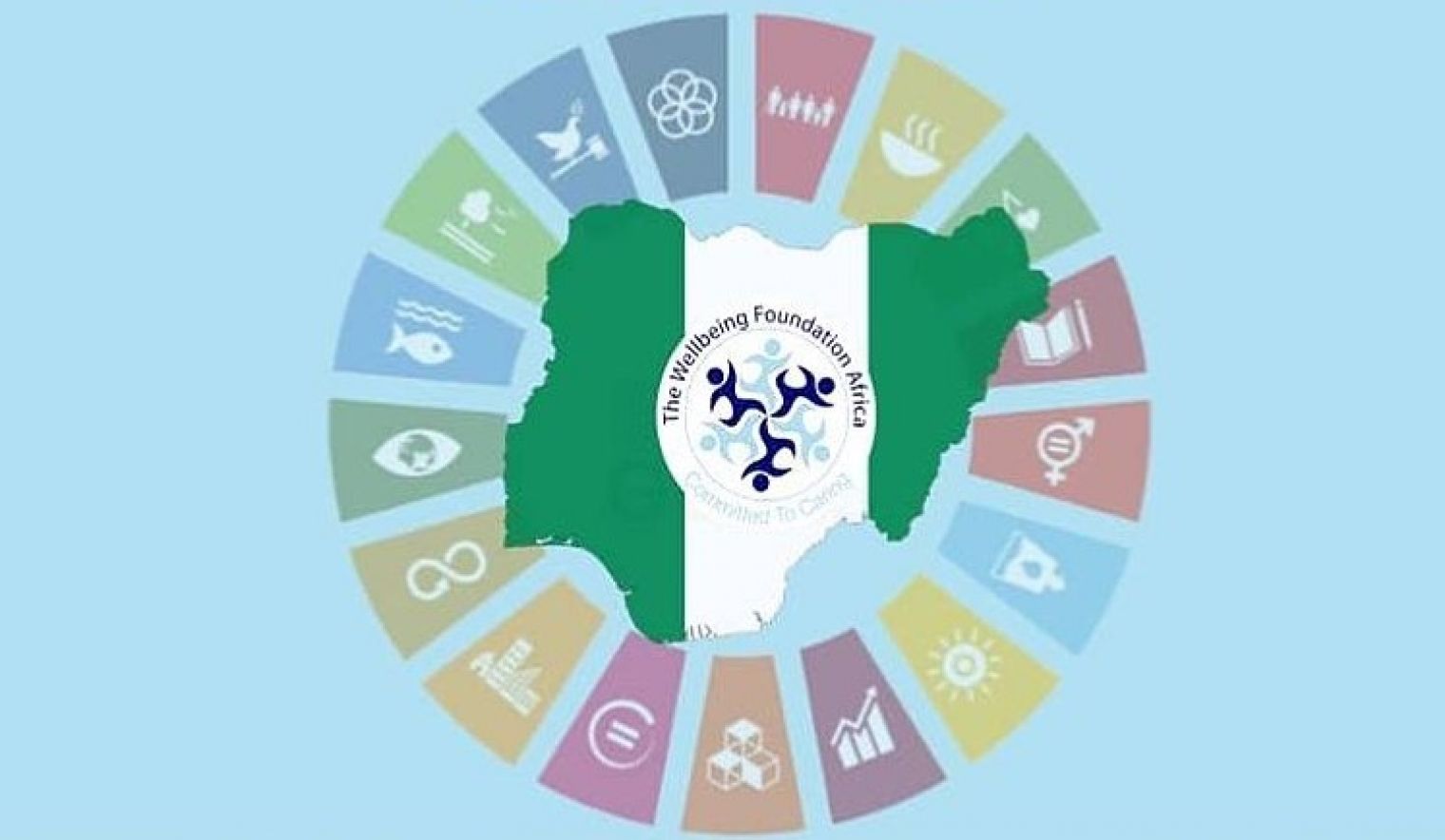
Nigeria @ 60: Revitalising the Primary Healthcare system – A critical strategy to Universal Health Coverage
By Dr A.A Roberts
“Health and wellbeing” This has been the dictum of the Wellbeing Foundation Africa (WBFA) since inception, since the sudden preventable death of a young toddler in the arms of its President-Founder and Devex Global ‘health-for-all’ champion, H. E. Toyin Ojora Saraki, then the First Lady of a newly elected civil administration in Kwara State, one of the poorest states in Nigeria. Since then, it seems to the casual onlooker that there are certain aberrations that have become enshrined in our normative belief system, and that is the normalization of preventable deaths. In his statement during the 74th session of the UN General Assembly, Ugandan cardiovascular surgeon, Francis Omaswa said, “The right to life is a right to health, since life without health is not worth living…this constitutes a right to a health system that assures the population of health and wellbeing throughout the life course.”
Health for all or Universal health coverage (UHC) means that all individuals and communities receive the health services they need without suffering financial hardship. This includes the full spectrum of essential, quality health services, from health promotion to prevention, treatment, rehabilitation, and palliative care. Proper UHC ensures everyone has access to the services that address the most significant causes of disease and death, while guaranteeing said services are of the quality capable of improving the health of the people who receive them. This is one of the targets of the Sustainable Development Goals (SDGs) which the world committed to in 2015. Particularly, SDG 3, “Ensure healthy lives and promote well-being for all at all ages”. While all countries focus on how to achieve this goal, for Nigeria, ensuring UHC can be deconstructed into ensuring that healthy children are born, grow into healthy adults who can contribute their full quota to national development and constantly move the boundaries of the “poverty capital” further and further from the borders of our nation.
In his address on Wednesday, September 16, 2020, Nigeria’s president Muhammadu Buhari spoke about the resilience of the Nigerian, his/her “welcoming spirit, love as well as the abundant wealth inherent in our human capital…All these properties make us unarguably the most prosperous black nation in the world and Africa’s largest economy”. A key indicator of that human capital referred to is the Human Development Index (HDI) which tracks life expectancy, education and per capita income, to determine the quality of said human capital. To extend life expectancy and lay any claim to being the most prosperous black nation, Nigeria, having committed to the SGDs must achieve Universal Health Coverage and access to quality health care, leaving no one behind.
Nigeria still has unacceptable indices where payment for health services is concerned. Examination of the total health expenditure of Nigeria shows that till date almost three-quarters of the health spend is out-of-pocket from the proportion of the population that can least afford it. Out of pocket payment for health constitutes over 70% of total health expenditure, significantly higher than the globally recommended 30–40%. Barely 5% of the total population is covered by any kind of health insurance, against the recommended 90% coverage by the World Health Organisation (WHO). The financial consequences of such high out-of-pocket expenses for accessing health services generally pushes vulnerable families into poverty. Unexpected illness, accidents and other health-related events, eroding life savings, forcing sale of assets, debt, and death, all of which contribute to the destruction of the future of the family and their children, starting cycles of poverty and death which could take generations to break.
Access to health care does not mean “Free health for all” This unfortunate political strategy has been a major impediment in ensuring UHC. Even the richest countries in the world do not provide all services free of charge. There is always a mutual benefit when user-responsibility is established, leading to sustainable health systems.
The health system comprises of everything and everyone involved in delivering health services. The people, the equipment, products, consumables, the environment – communication systems, information systems, technology systems, quality assurance and improvement strategies, governance and legislation. In sixty years, Nigeria has not leveraged on what has been put in place globally to strengthen its health system.
What Nigeria has is a boatload of policies that in many areas overlap in scope and implementation, ensuring that only a few areas of UHC are delivered in a disjointed manner that impedes efficiency, given that health is run concurrently in the constitution. Health services need to be more than just the Ward Minimum Health Package. They need to demonstrate a capacity for progressive expansion of coverage of health services while ensuring financial protection for the people they are serving.
How do we change the narrative in Nigeria? It is unbelievable that nearly three decades after the launch of the National Health Insurance Scheme, we are where we are with out-of-pocket health expenditure. The Alma-Ata Declaration that was patterned after the ‘barefoot doctors’ in China to leverage on key principles of appropriate technology, community involvement and common endemic morbidities to build a health system from the grassroots up, is now 42 years old. For Nigeria, sixty years after independence, these aspirations have unfortunately remained just that and the then realities are still the present realities. The Chinese ‘barefoot doctors’ have started wearing shoes! “Lack of effective stewardship role of government, fragmented health service delivery, inadequate and inefficient financing, weak health infrastructure, maldistribution of health workforce and poor coordination” are all still operational bottlenecks.
According to recent data released by the Nigeria Bureau of Statistics (NBS), the state with the lowest under-5 mortality rates in the country today is Kwara State! This was gotten from the recent data released by the World Bank stating that Nigeria is set to overtake India as the country with the highest number of under-5 deaths by 2021. Despite the gloomy forecast, Kwara shows us that we can improve this indicator. The 45 deaths per 1000 live births was not an overnight success. It is the culmination of over 17 years of dedicated committed focus by a conscientious advocate campaigner to the health and wellbeing of those who are the most vulnerable, powerless and voiceless. This is the heart and essence of Universal Health Coverage. It is not a poli-tricks-ical matter, it is a basic collective responsibility. It is not based on emotions, feelings or a need to ‘look good’. It is a determined commitment to ensuring that there are efficient, effective public health campaigns for safe water, basic sanitation, vector-control, routine immunization against vaccine-preventable diseases among others.
There needs to be national commitment to the common goods of health – road networks, agriculture, power, security – all the things that can make a paper-thin difference between whether a mother and her child live or die. Universal Health Coverage refers not just to equity and equality, it refers to social inclusion, cohesion and participation. It means walking the talk of our development priorities as a nation. It means that no matter who is at the top, those at the bottom have access to basic human rights to life, rights to health, rights to a health system fit for purpose, fit for them to ensure they remain fit. #wellbeingforlife
Dr. Alero Roberts (BSc MMBS MPH FMCPH) is the Vice President of the Wellbeing Foundation Africa, and the 2nd Vice President of the Association of Public Health Physicians of Nigeria (APHPN).
Share this Article
